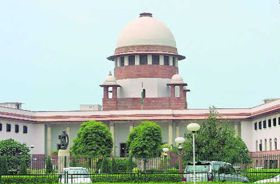An online session organised by the Majha House.
Neha Saini
Amritsar, September 23
The Majha House, under the Sanjha Panjab initiative, organised an online session with Dr Ishrat Husain, author, former banker, eminent economist and former adviser to the Pakistan Prime Minister, to talk about his new book ‘Governing the Ungovernable: Institutional Reforms for Democratic Governance’. Talking to him was Aaditya Dar, Asst Professor of Economics, Indian School of Business, and at present teaching at the University of Maryland.
Introducing the session, Preeti Gill, founder, Majha House, said the Sanjha Panjab, an offshoot of Majha House, is an initiative to bring together academics, writers, performers, thinkers and artists from East and West Punjab and discuss their common heritage and culture.
“Dr Ishrat Husain’s book is a comprehensive look at the flaws that led to institutional decay in Pakistan and what led to its current position as an ‘ungovernable’ state,” said Preeti, adding, “weaving together Pakistan’s political, social and economic history. Husain’s book not only points to mistakes, but also suggests a way forward to rebuild civilian institutions and improve governance,” she said.
Taking the conversation forward, Dr Aaditya Dar asked Dr Ishrat to talk about the economy of Pakistan in the past where it had registered considerable growth and how it was ahead of India and Bangladesh. In his reply, Dr Husain said, “After Independence, Pakistan’s growth rate was around 7% and remained almost the same for the first 40 years. Since 1990, however, the country had fallen behind its neighbour and had seen a decline in growth rate. The reasons are many and chief among these is the decay of institutions of governance,” said Dr Ishrat.
He shared that the first signs of the economic slowdown appeared economy when Zulfikar Ali Bhutto became the Prime Minister, which didn’t go well with the powers that be, and since then the economy has not been able to revive itself in spite of the best efforts by many stakeholders.
He also talked about the role of religious fundamentalists in Pakistan. Dr Husain said religious sects and fundamentalists had a stronghold in Pakistan. “Although religious fundamentalists don’t have much presence or say in the electoral process it cannot be denied that they have a very strong street presence. And when certain sects have street power they tend to dominate the larger population. Even though there are people, who want Pakistan to become a fundamental country, the people by and large want good governance and also want Islam to be tolerant and affectionate,” he shared.
He also commented on the present dismal conditions in Pakistan because of the floods. Dr Husain said the economy had taken a beating. “The loss that we are looking at is around $33 billion, which is around 6-8 per cent of the country’s GDP. Also, because of the feudal set-up, the usage of water is also disproportionate and the elite in the country tend to misuse water sources. Because of this we seriously need to rethink our water treaty with India,” he said.
Join Whatsapp Channel of The Tribune for latest updates.




























